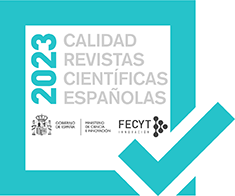Título: “La pesca ilegal como actividad delictiva: una aproximación a la problemática española”
Title: “Criminological Perspective Of Illegal Fishing: An Aproach To The Spanish Problem”
Autor: Esteban Morelle Hungría, Doctorando en Derecho ambiental, Universidad de Alicante
Fecha de recepción: 16/ 10/ 2017
Fecha de aceptación: 15/ 11/2017
Resumen:
Se realiza una breve aportación sobre el análisis de la actividad ilegal de la pesca, en sus diferentes modalidades, considerando el daño social, económico y ambiental asociado a ella. Detallaremos los daños ocasionados por la pesca furtiva teniendo en cuenta que, como apuntan diferentes informes y estudios, existen diferentes barcos o empresas españolas, denunciadas por practicar o favorecer la pesca ilegal que, representando hasta un tercio de la capturas de determinadas especies ponen en riesgo no solo a la propia especie, sino al ecosistema del que forman parte. Se enumeran los mecanismos, más importantes, de protección jurídica frente a la pesca ilegal, incidiendo en la definición del delito de pesca ilegal, haciendo una breve referencia a la perspectiva de la Green criminology. Por último, se analizan las principales especies que son consideradas como especies de interés en la pesca denominada ilegal, así como una descripción de la actual regulación jurídica de la pesca marítima.
Abstract:
A brief contribution is made on the analysis of illegal fishing activity, in its different modalities, considering the social, economic and environmental damage associated with it. We will detail the damage caused by poaching, bearing in mind that, as different reports and studies suggest, there are different Spanish vessels or companies reported for practicing or favouring illegal fishing which, representing up to one third of the catches of certain species put at risk not only to the species itself, but to the ecosystem of which they are part. It lists the most important mechanisms of legal protection against illegal fishing, focusing on the definition of the crime of illegal fishing, with a brief reference to the perspective of green criminology. It analyses the main species that are considered as species of interest in the so-called illegal fishing, as well as a description of the current legal regulation of sea fishing.
Palabras clave: Green criminology, pesca, economía, medio ambiente, furtiva
Key Words: Green criminology, fishing, economy, environmental, illegal fishing
Sumario:
I. Introducción
II. La pesca ilegal
a) Mecanismos de protección
b) Impactos de la pesca ilegal
III. Principales especies capturadas mediante técnicas INDNR
IV. Acto criminal: la configuración del delito de pesca ilegal
a) Referencia al delito de contrabando
b) Aspectos relacionados con la delincuencia organizada de la pesca INDNR
c) Análisis desde la denominada Green criminology
V. La denominada “pesca pirata” de empresas españolas
VI. Conclusiones
VII. Bibliografía
Summary:
I. Introduction
II. Illegal fishing
a) Protection’s mechanisms
b) Impacts of illegal fishing
III. Main species caught using IUU techniques
IV. Criminal act: configuration that illegal fishing how crime
a) Reference to the offense of contraband
b) Aspects related to organized crime in IUU fishing
c) Analysis from the so-called Green criminology
V. The so-called “pirate fishing” of Spanish companies
VI. Conclusions
VII. Bibliography
Doi: https://doi.org/10.56398/ajacieda.00102



